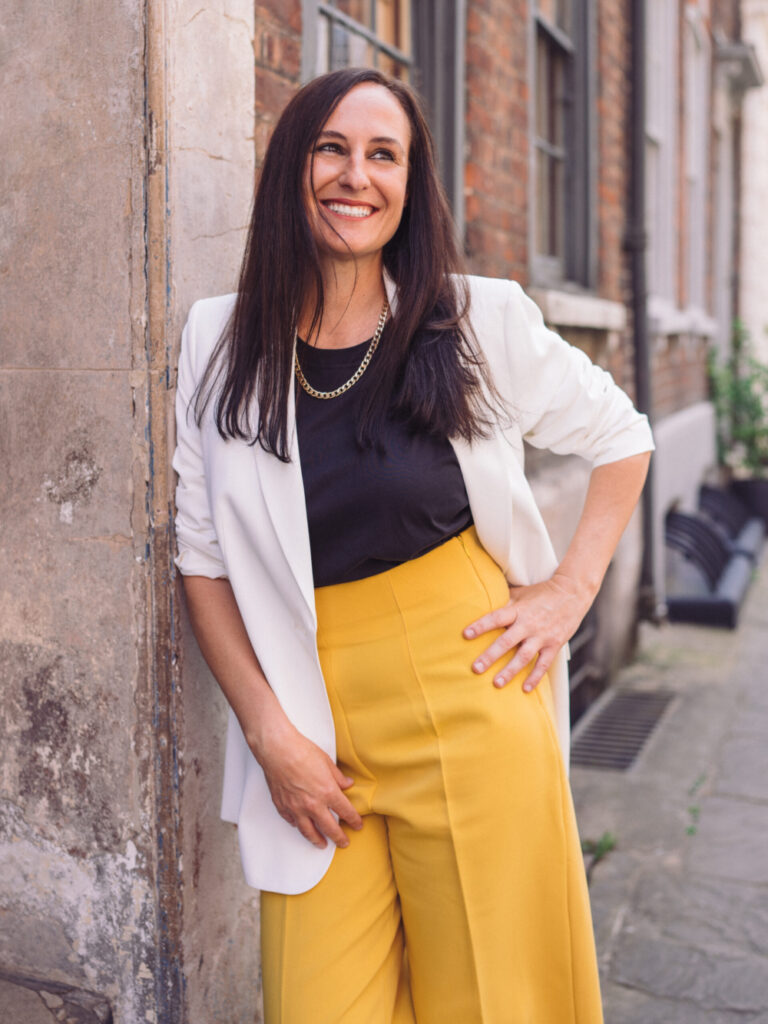A few days ago, BroadAgenda editor Ginger Gorman spotted a stunning Internet campaign, designed to “Correct the Internet“, allowing female elite athletes to take their rightful places in the history books.
To quote from the campaign:
Many of the world’s best athletes are women. And many of the world’s sporting records are held by women. But due to human bias, our search engines have learnt to prioritise sportsmen in our search results, even when the facts put sportswomen first.
We want to change that.
By using each search engine’s inbuilt feedback function to send feedback whenever we find something wrong, we can get the inconsistencies in our search results logged and fixed.
Ginger had a chat with former New Zealand elite footballer, Rebecca Sowden, about the campaign.
In a few sentences, tell us a bit about yourself and your background.
I’m a former New Zealand Football Fern who has spent 20 years at the intersection of sports, media and entertainment. Nearly four years ago I founded Team Heroine, a women’s sport sponsorship and marketing agency after I was watching the FIFA Women’s World Cup in France and felt that brands still weren’t unleashing the opportunity around women’s sport.
What’s the “Correct the Internet” campaign all about?
It’s a social cause initiative to tackle the gender bias that occurs on the internet against sportswomen in hopes of giving sportswomen their rightful place on the internet and ultimately increasing the visibility of women’s sport.
View this post on Instagram
How did it come about?
A group of like-minded people came together after finding we were incurring the same problem that when we searched online for information or statistics pertaining to sports or sportswomen we were often getting served the incorrect factual information.
So we joined forces and in true women’s sport fashion have garnered support across the board, be it from athletes like Australian swimmer, Tasmin Cook, Perth Glory footballer Tash Riby, the United Nations, Women’s Sport Australia, Women in Sport WA and more.

Former elite footballer Rebecca Sowden wants human bias to stop stealing glory from female athletes. Picture: Supplied
How have human biases (AI and algorithms) learned to replicate off-line societal biases?
This internet is simply a reflection of our human biases and it’s simply reflecting what it thinks we want to see as we have as humans have created this problem by teaching search engines our inherent bias.
What do you want to see done about it?
We’re not only hoping to raise awareness around the inaccuracies around sporting information and sportswomen on the internet but actually correct the incorrect stats. We’ve identified around 30 incorrect existing statistics that people can help correct by heading to www.correcttheinternet.com and following a few simple steps to provide feedback to the search engines and help us get these corrected. Alternatively people can also submit incorrect statistics they have found and we can also add them to our list.
What kind of response have you had – especially from female athletes of all ages? Have the tech companies responded?
The support globally has been phenomenal and better than we could have ever hoped which really goes to show it’s a universal problem that is resonating around the world.
We’ve had support from athletes like US Soccer star Alex Morgan and the US Women’s National Soccer Team Players Association to leading bodies like the United Nations and media companies supporting with free ad spots. We’re confident tech companies also want to see the correct factual information around sports and sportswomen conveyed on the internet.
What do we do if we find a mistake online?
Head to www.correcttheinternet.com and get in contact with us to let us know so we can add it to our on-going list which people can support. Alternatively if you find something moving forward online you can easily submit feedback directly to that search engine by following the simple steps outlined on our website.
Longer term, what do you hope this will achieve? What would a perfect internet look like to you, when it comes to women’s sport and representation?
We want people to receive the correct factual information around sport no matter who they are or where they are searching from.
We want sportswomen to be recognised for their achievements and we want to inspire the next generation.
Anything else you’d like to say?
We created this problem, but we can all fix it. Get correcting now!
Ginger Gorman is a fearless and multi award-winning social justice journalist and feminist. Ginger’s bestselling book, Troll Hunting,came out in 2019. Since then, she’s been in demand both nationally and globally as an expert on cyberhate and the real-life harm predator trolling can do. She's also the editor of BroadAgenda and gender editor at HerCanberra. Ginger hosts the popular "Seriously Social" podcast for the Academy of the Social Sciences in Australia. Follow her on Twitter.





